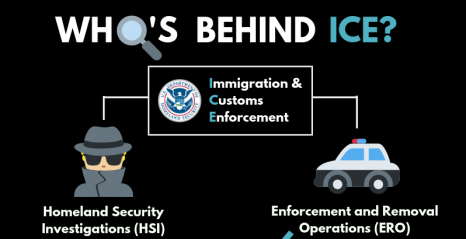
By Hairo Cortes, Chispa
Tomorrow could be one of the most significant days for immigrants in California’s history.
The State Assembly’s Judiciary Committee is expected to decide whether to advance legislation that would cut the state’s contract with the tech companies companies supplying software for Immigration and Customs Enforcement (ICE).
For better or worse, big tech is here and it’s here to stay. The promise of the information revolution and a decade’s worth of “there’s an app for that” is upending our labor markets, restructuring the ways we spend every minute of our days, and ensuring that our every movement is tracked, categorized, and sold for a profit.
For ICE and the private prison companies–organizations whose sole mission is track, detain, and monetize immigrants–the advent of the big tech companies and their capacity to break down people into numbers with tracking systems, facial recognition software, and the like couldn’t have been a greater godsend. The advances come at a time when their primary deportation enforcement programs continue to move toward clandestine targeted operations, and when record numbers of immigrants in detention facilities demand better case management systems to keep track of the 50,000 immigrant prisoners.
Entering this fray is the “No Tech for ICE” campaign and the Sanctuary State Contracting and Investment Act by Assemblyman Rob Bonta (D-Alameda). Launched by Mijente, a national Latinx organizing hub that formed out of the #Not1More deportation campaign, No Tech for ICE took its cue from successful drives that challenged tech companies like Salesforce, Amazon, and Palantir to answer for their role in facilitating and expanding ICE’s capacity to target, detain, and deport immigrants. It’s a strategy that relies on educating and mobilizing the public, and, at times, the companies’ own employees, to pressure big tech to short-circuit their contracts with ICE and private prison companies.
Bonta’s bill, in turn, seeks to take the demands of No Tech for ICE, and the precedent set by cities in and around Silicon Valley like Richmond that have already taken the step to forego contracts with tech companies that contract with ICE, and apply them to the entire state.
Under the proposed bill, state and local agencies would be prohibited from working with companies that help the Department of Homeland Security (DHS) target immigrants in California. It would also ban the state from investing in those companies.
With big tech’s biggest profits coming from the state, Bonta’s bill is proving to be far more than just a symbolic gesture. Instead, it seeks to compel change in the companies’ relationship with the immigrant deportation machine by cutting off a lucrative market. And if history is any indication, we can expect a domino-effect that will make similar policies in other states politically feasible, and popular.
The Judiciary Committee will vote whether to move the Sanctuary State Contracting and Investment Act forward tomorrow morning. Although the bill will have to go for a floor vote with the full Assembly, and eventually toward the State Senate, tomorrow’s committee vote will be an important measure of California’s commitment towards justice and towards being a steward of people-centered policies.

Deport This! is a partnership between OC Weekly, Chispa and Orange County Immigrant Youth United. The column is a rebuttal of Donald Trump’s racist politics and his OC cheerleaders, who’ll no doubt get triggered every week with news and views by and about the undocumented community.


California liberals are beyond ignorant advancing bills like this. Go back in time and don’t utilize technology to address a known problem. What a joke this state lawmakers are
Good luck enforcing this law, you jabronis! I guess they didn’t take Civics in high school to learn anything about the Commerce Clause. Please read up on Article I, Section 8, Clause 3 for clarification.